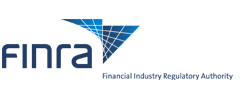
Nancy Condon (202) 728-8379
George Smaragdis (202) 728-8988
UPDATE: This news release included a link to an Investor Alert that has since been retired. Current information about REITs and other investment products can be found on the Alternative and Emerging Products page.
FINRA Issues Investor Alert on Public Non-Traded REITs
WASHINGTON — The Financial Industry Regulatory Authority (FINRA) today issued a new Investor Alert called Public Non-Traded REITs-Perform a Careful Review Before Investing to help investors understand the benefits, risks, features and fees of these investments. While investors may find non-traded REITs appealing due to the potential opportunity for capital appreciation and the allure of a robust distribution, investors should also realize that the periodic distributions that help make non-traded REITs so appealing can, in some cases, be heavily subsidized by borrowed funds and include a return of investor principal. Additionally, early redemption of shares is often very limited, and fees associated with the sale of these products can be high and erode total return.
"Confronted with a volatile stock market and an extended period of low interest rates, many investors are looking for products that offer higher returns in turbulent times. However, investors should be wary of sales pitches that might play up non-traded REITs' high yields and stability, while glossing over the lack of liquidity, fees and other risks," said Gerri Walsh, FINRA's Vice President for Investor Education.
Real estate investment trusts (REITs) pool the capital of numerous investors to purchase a portfolio of properties—from office buildings to hotels and apartments, even timber-producing land—which the typical investor might not otherwise be able to purchase individually. There are two types of public REITs: those that trade on a national securities exchange and those that do not. FINRA's alert focuses on publicly registered non-exchange traded, or simply non-traded REITs.
Public Non-Traded REITs outlines the features, complexities, risks and costs associated with non-traded REITs.
- Distributions are not guaranteed and may exceed operating cash flow. In newer programs, distributions may be funded in part or entirely by cash from investor capital or borrowings. Distributions can also be suspended for a period of time or halted altogether.
- Lack of a public trading market creates illiquidity and valuation complexities. Most non-traded REITs are structured as a "finite life investment," meaning that at the end of a given timeframe, the REIT is required either to list on a national securities exchange or liquidate. Many factors affect the valuation of non-traded REITs, including the portfolio of real estate assets owned, strength of the trust's balance sheet, overhead expenses and cost of capital.
- Early redemption is often restrictive and may be expensive. Most non-traded REITs place limits on the amount of shares that can be redeemed prior to liquidation. These limits can be as restrictive as 5—or even 3—percent of the weighted average number of shares outstanding during the previous year. Additionally, the redemption price is generally lower than the purchase price, sometimes by as much as 10 percent.
- Non-traded REITs can be expensive. State and FINRA guidelines limit front-end fees to 15 percent, but a 15-percent front-end fee on a $10,000 investment means that only $8,500 is going to work for an investor.
Public Non-Traded REITs-Perform a Careful Review Before Investing also warns investors about private REITs—generally sold only to accredited investors—which not only do not trade on an exchange, but are also generally exempt from Securities Act registration. FINRA cautions that it is extremely difficult for investors to make an informed decision about private REITs due to their lack of disclosure documents.
FINRA, the Financial Industry Regulatory Authority, is the largest non-governmental regulator for all securities firms doing business in the United States. FINRA is dedicated to investor protection and market integrity through effective and efficient regulation and complementary compliance and technology-based services. FINRA touches virtually every aspect of the securities business – from registering and educating all industry participants to examining securities firms, writing and enforcing rules and the federal securities laws, informing and educating the investing public, providing trade reporting and other industry utilities, and administering the largest dispute resolution forum for investors and registered firms. For more information, please visit www.finra.org.
